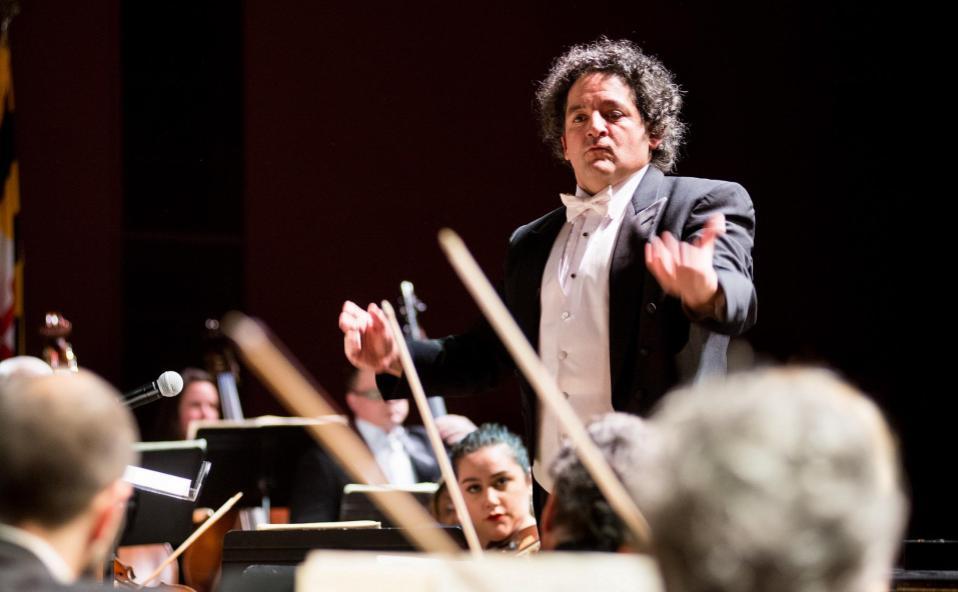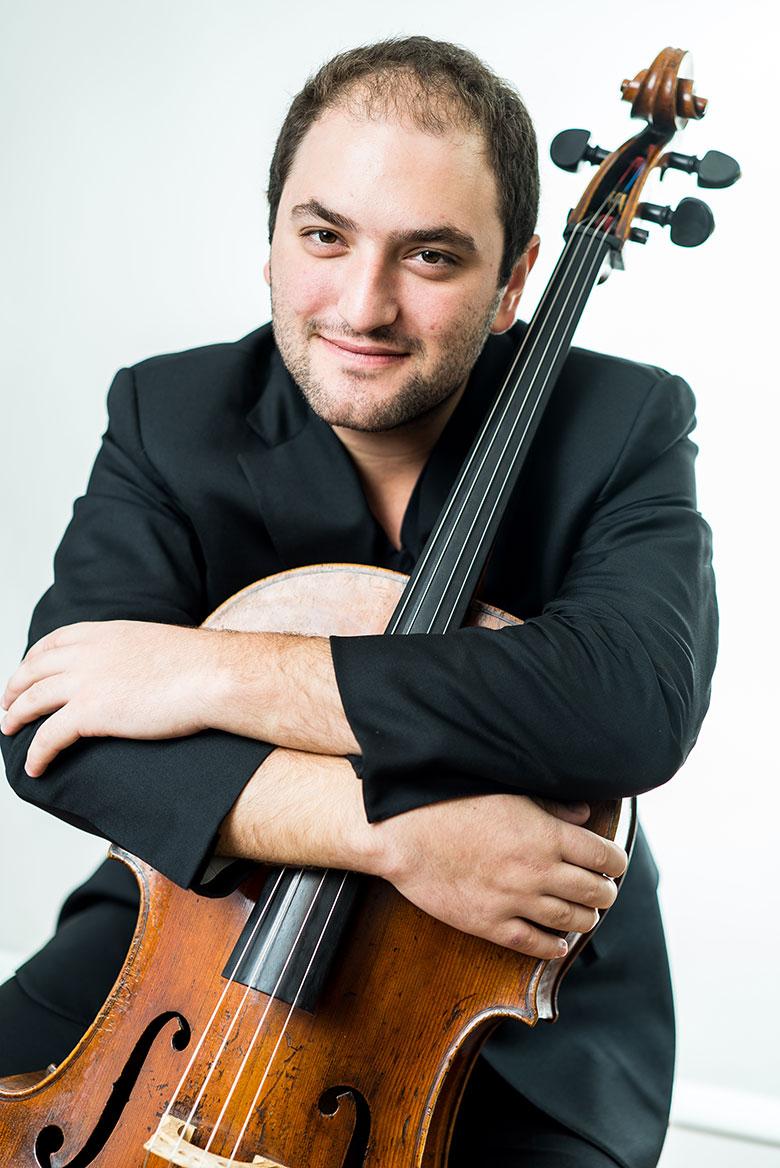The Mid-Atlantic Symphony Orchestra resumes its 2021-2022 season in March with a program featuring the Cello Concerto No. 2 by Camille Saint-Saëns, with award-winning cellist Julian Schwarz as guest soloist.
In addition to the Cello Concerto, the program will include Wolfgang Amadeus Mozart’s Overture from The Magic Flute and Robert Schumann’s Symphony No. 2.
“The second cello concerto is a thematic tour de force and is much more technically challenging than Saint-Saëns’s first,” said Mid-Atlantic Symphony Orchestra Music Director Julien Benichou. “It is an ideal work to showcase the talent of a true virtuoso such as Julian Schwarz.”

Maestro Julien Benichou
The program will be performed on Thursday, March 10 at 7:30 PM at the Easton Church of God in Easton, MD; on Saturday, March 12 at 7:30 PM at Epworth United Methodist Church in Rehoboth Beach, DE; and on Sunday, March 13 at 3 PM at Community Church in Ocean Pines, MD.
Individual tickets for the March concert are $45. For additional information or to order tickets, visit www.midatlanticsymphony.org. Tickets also may be ordered by telephone at 888-846-8600, or purchased at the door.
To ensure the safety of its audience members and musicians, the Orchestra requires proof of COVID-19 vaccination for everyone entering venues.
Saint-Saëns’s Cello Concerto No. 2 in D minor, Op. 119, was composed in 1902 and dedicated to the Dutch cellist Joseph Hollman, who gave the first performance in Paris in 1905. A cyclic work, it comprises two large movements, a composition style Saint-Saëns employed in several of his other works including the First Violin Sonata, the Fourth Piano Concerto, and the “Organ Symphony.”

Cellist Julien Schwarz
Schumann’s Symphony No. 2, Op. 61, published in 1847, possesses an uplifting tone that is surprising given the health problems he was experiencing at the time. The Symphony also marked a shift in compositional strategy, as Schumann began to compose away from the piano and as he engaged in an intensive study of counterpoint with his wife, Clara Schumann.
Mozart completed the Overture to The Magic Flute, K. 620, just several days before the opera’s premiere in 1791. Reflecting the numeric symbolism of the Freemasons, of which he was a member, the Overture opens with a grand proclamation of each of the three notes of the tonic triad. The remainder of the work showcases Mozart’s brilliant use of counterpoint and dynamic contrasts to build a more complex piece than one might expect from its opening theme.
Guest soloist Julian Schwarz was born to a multigenerational musical family in Seattle, WA, in 1991. After making his concerto debut at the age of 11 with the Seattle Symphony – with his father Gerard Schwarz on the podium – he made his U.S. touring debut with the Moscow Radio Symphony Orchestra in 2010.
Since receiving first prize at the inaugural Schoenfeld International String Competition in 2013, he has led an active career as soloist, performing with more than two dozen orchestras in the U.S. He also has performed internationally in countries including Australia, Hong Kong, Mexico, and Switzerland. In 2016, Schwarz and pianist Marika Bournaki were awarded first prize at the inaugural Boulder International Chamber Music Competition.
Schwarz, who has multiple recordings on Naxos Records and other labels, serves as assistant professor of cello at the Shenandoah Conservatory of Shenandoah University in Winchester, VA. He also is a member of the artist faculty of New York University’s Steinhardt School. He earned bachelor’s and master’s degrees from The Juilliard School, where he studied with Joel Krosnick.
Schwarz plays a Neapolitan cello made by Gennaro Gagliano in 1743.
The only professional symphony orchestra serving southern Delaware and Maryland’s Eastern Shore, the Mid-Atlantic Symphony Orchestra is supported in part by the Maryland State Arts Council; the Talbot County Arts Council; the Worcester County Arts Council; the Sussex County, DE Council; and the Community Foundation of the Eastern Shore, Inc.



Write a Letter to the Editor on this Article
We encourage readers to offer their point of view on this article by submitting the following form. Editing is sometimes necessary and is done at the discretion of the editorial staff.